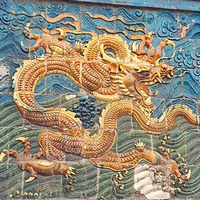BEIJING -- With multiple indicators pointing to a tangible slowdown in the Chinese economy, continuing signals from senior leaders that the country is entering a new period of more-controlled economic growth, and significant reforms afoot, there is growing evidence that China is entering a new phase in its economic development. But deterioration in the global macroeconomic environment has created a new and less benign backdrop for this change, significantly limiting policy options for reform and reducing the margin for error. With domestic systemic financial stress and social tension also both ticking upward, China may be finally forced to confront the legacy of its previous excesses and begin the long-overdue move toward a more democratic industrial policy. As such, 2012 could prove to be one of the most challenging years yet in its economic re-emergence.
As one State Council member succinctly put it at this month's Chinese Communist Party Central Working Economic Committee in Beijing, China is transitioning from the “10+2” era, where growth was 10 percent per year and the rate of inflation kept at 2 percent, to the “8+4” era. This shift is the result of an ambitious government drive to rebalance China's economy away from the heavy and manufacturing industries, while stimulating domestic incomes and consumption. The deterioration of external conditions has increased the urgency of implementing many of these reforms, but previous imbalances and an inherent caution within the domestic political system limit the pace of change.
Moreover, in a critical development, the policy environment for several key reforms has inverted almost 180 degrees from a year ago, and some of the cornerstones of China's previous success have become major economic burdens. The most striking case in point is the currency peg, which has become increasingly counterproductive as attempts at domestic rebalancing have taken shape. Apart from acting as a major roadblock to wider financial reform, it has also boosted foreign exchange reserves to unhelpful levels, forced reckless monetary expansion and limited China's import purchasing power.

